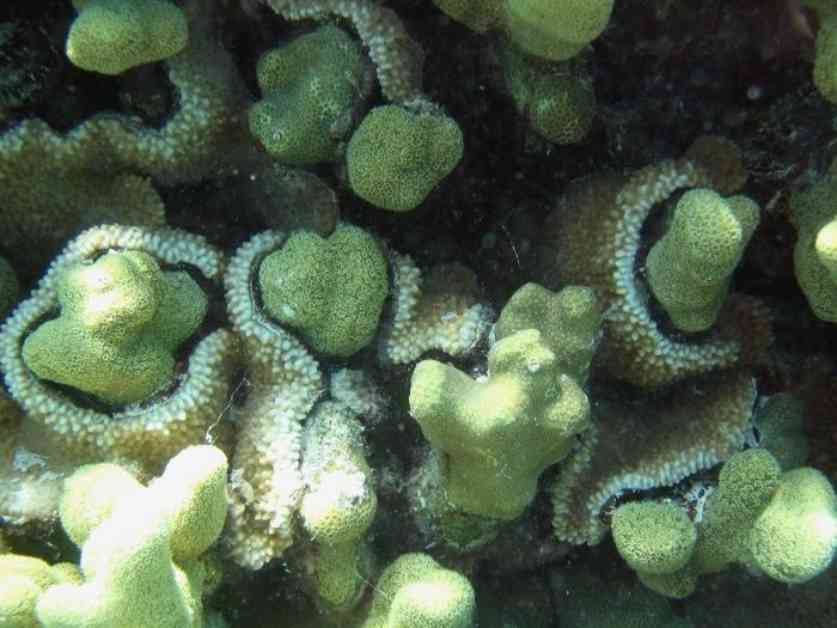Coral reefs around the world are facing numerous challenges, including warmer and more acidic water, pollution, and development. These factors have led to the decline of many reefs, transforming once vibrant ecosystems into barren landscapes dominated by algae. However, in the Ulithi atoll in the Federated States of Micronesia, a different ecological shift is taking place. Some reefs are being overwhelmed by a fast-growing species of Montipora coral known as rice coral.
The proliferation of rice coral on the reefs has had a significant impact on the marine ecosystem. Local residents, who have relied on the reefs for thousands of years as a vital source of food, have noticed a decline in fish populations and the disappearance of certain species, such as triggerfish and octopus. The rice coral has outcompeted other species, creating an environment that, while still abundant in coral, lacks the diversity and life that once thrived there.
Researchers studying the phenomenon have found that the spread of rice coral is not solely due to human activities, such as physical damage to the reefs. Instead, a combination of environmental factors and the coral’s own competitive advantages have contributed to its dominance. This raises concerns about the implications of promoting highly resilient “supercorals” in coral restoration efforts, as these species may outcompete others and lead to monocultures that are detrimental to the overall health of the reef.
The case of the Ulithi atoll serves as a cautionary tale about the unintended consequences of favoring certain coral species in restoration initiatives. While the urgency to restore and protect coral reefs is clear, it is essential to consider the long-term impacts of introducing species that may disrupt the delicate balance of marine ecosystems. Finding a balance between conservation efforts and ecological diversity is crucial to ensuring the resilience and sustainability of coral reefs for future generations.






